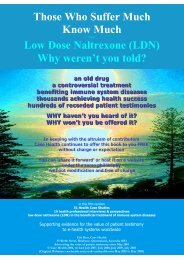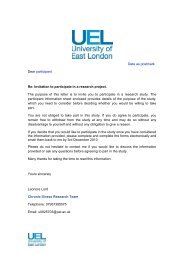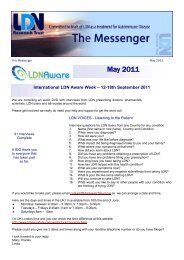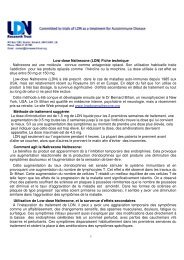At that time, late in 1981, I had noticed an article in one of the many free medicalnewspapers, which referred to the opportunity of a career in the Royal Fleet Auxiliary, afleet of civilian manned merchant ships, maintained and provided by the Ministry ofDefence. These include tankers, munitions and dry stores ships, troop and logisticssupply ships and helicopter support ships. Within the merchant navy it is a rule thatany ship carrying more than 100 men was required to also carry a doctor.The article was offering the opportunity of joining this service. With the addedopportunity of travel to various locations around the world, and the security ofpermanent work, this seemed very appealing. I made my application but it was mislaidand I was enrolled too late to join the initial task force to the Falklands. A subsequentapplication was successful and I was eventually posted to serve on the tanker, RFAOlwen, which I joined in Gibraltar in 1982.Numerous deployments followed. During this period I was to experience the first signsof an increasing dispirited fatigue characteristic of MS that was to become more severelater.My final deployment was on the Olwen. Nearing the end of my term I grew aware ofcertain changes in my level of fitness. My walking was no longer as steady; I had alsobecome aware of episodes of profound fatigue in more recent months, when I seemednot to have the energy to even pack a suitcase in preparation for leaving the ship.The feelings of increasing weakness and lassitude that I had previously experienced onthe Resource became not only more severe, but more prolonged. These deep andpervasive feelings became not only physically, but also emotionally and intellectuallydraining, affecting not only my mood but also my processes of judgement and rationalthought. This overwhelming fatigue seemed to sap both the spirit and the soul, leavingan empty loneliness that, by whatever means, could not be filled.I was by this time, aware that during my time on the ship it had become necessary toabandon many of the requirements of the restricted diet that I had been previouslyfollowing. Unfortunately, on a ship, it was no longer possible to choose the menu in theway that I had been able to while ashore. I therefore found myself occasionally eatingthose foods that I had previously attempted to avoid.In this way, I was once again able to demonstrate the adverse effects of such a nonselectivediet, when my symptoms clearly began to get worse as I strayed from thedesired path of suitable foods.Thus, as my symptoms became progressively worse, I seemed to know that this was tobe my final trip with the RFA, which was also to culminate in a somewhat anxiousepisode when, during our return to the UK early in 1986, the ship's engines failedduring our transit of the Southwest Approaches several hundred miles from the tip ofCornwall.The ship was subsequently left adrift for three days while the ship's engineers workedfrantically trying to establish the necessary repairs. It was at such a time that it may berealised how dependent we were on the various ship's systems: with no power therewas no water to wash or to drink, the toilets did not flush, there was only emergencylighting to see by; and food could not be cooked.Produced by <strong>LDN</strong> Research Trust for <strong>International</strong> <strong>LDN</strong> <strong>Awareness</strong> <strong>Week</strong> 19-25 October 2009© <strong>LDN</strong> Research Trust 200924
For three days we lived on sandwiches, drinking emergency bottled water supplies, andflushing toilets with buckets of water lifted from over the side of the ship. The greatestconcern however was the risk of collision with other ships. It was cause for celebrationwith the power restored, when all the various ship's systems came back on line. Withnormal services fully restored we quickly made our way back to the UK to dock inPortsmouth.On reaching port, we were once more able to reconnect to all the routine shoreservices including luxuries such as telephones and television. Iremember reading news of a female patient in America, apparently diagnosed with MS,who seemed to recover from her symptoms after having all her mercury amalgamfillings removed and replaced with silicate fillings. This was obviously of interest to meas I had, for some time, begun to consider the diagnosis of MS in myself.I was later to undertake this same procedure in the hope that my symptoms too wouldbe equally resolved. The process however, although considered advisable, failed tomake any apparent difference to the further progress of my symptoms.With this increasing sense of doom and coincident symptoms associated with mycigarette-smoking habit I resolved to, at least, bring this habit to an end. As shipsdoctor I was able to order a quantity of Nicorette, nicotine chewing gum. I then plannedto use up my last packet of duty-frees, at 27p for twenty, and, at 8-30 pm, on the 27thFebruary 1986, in company with the Senior Radio Officer in the officers mess, I smokedmy last cigarette.Having seen many others who had made such similar claims the SRO was notconvinced that my resolve would be successful, but after 23 years as a non-smoker, Ithink I have won the battle.When the inevitable craving came to greet me several hours later I was prepared withmy nicotine gum. Chewing this hopefully, I remained in some doubt that it would beeffective. I was however, surprised that the demand, that intense craving to place yetanother cigarette in my mouth, disappeared like magic. On each subsequent occasionwhen this urgent demand re-occurred, I would simply chew on the gum for a fewminutes and once more, I was free of the craving that had maintained this damaginghabit for so long.I continued the use of the Nicorette long after I had left the ship when, after using thegum for about four months I felt confident enough to change the nicotine gum for plainchewing gum. I continued with this for a few weeks more, then abandoned the gum,and the habit, forever.I now know that had I continued smoking, this habit would have contributed greatly tothe further decline of both the MS and my remaining physical abilities.Soon after this, my term of attachment to this ship was completed and I left the Olwen,and the RFA for the last time. I felt particularly demoralised when leaving the ship as,by this time, I felt so weakened that, making some excuse of a trivial injury, I was forcedto seek help just to carry my suitcase down the gangway to finally leave the ship.On reaching home I soon made an appointment with my GP to seek a neurologicalopinion regarding my worsening symptoms. This eventually resulted in an appointmentProduced by <strong>LDN</strong> Research Trust for <strong>International</strong> <strong>LDN</strong> <strong>Awareness</strong> <strong>Week</strong> 19-25 October 2009© <strong>LDN</strong> Research Trust 200925
- Page 1 and 2: 100REASONSWHYYOU SHOULDKNOW ABOUTLD
- Page 3 and 4: STORYNUMBERCONTENT CONDITION PAGELi
- Page 5 and 6: 95 Vicki F, USA Multiple Sclerosis
- Page 7 and 8: 1Adrian, UKApril 2005 - Secondary P
- Page 9 and 10: Over the years I was given no medic
- Page 11 and 12: I was very run down and tired, and
- Page 13 and 14: I've just taken Syd on a walk by my
- Page 15 and 16: 6Atif A, ScotlandNovember 2005 - Mu
- Page 17 and 18: If I went for a walk it was like th
- Page 19 and 20: 8Bev K, USA2004 - Multiple Sclerosi
- Page 21 and 22: The back pain was the first indicat
- Page 23: I later noticed, when completing an
- Page 27 and 28: This had been opened and equipped w
- Page 29 and 30: presented to me and offering advice
- Page 31 and 32: On first reading mention of this ap
- Page 33 and 34: Videos of all the talks and other l
- Page 35 and 36: time it rained. I can stand in line
- Page 37 and 38: I fall asleep as soon as my head hi
- Page 39 and 40: are her main symptoms. She is affec
- Page 41 and 42: After a few weeks of taking LDN, I
- Page 43 and 44: (1) I still suffer from tiredness a
- Page 45 and 46: I was started on beta-interferon be
- Page 47 and 48: 20Crystal N, USANov 2004 - Secondar
- Page 49 and 50: After I was diagnosed with Secondar
- Page 51 and 52: 22David N, UK1995 - Multiple Sclero
- Page 53 and 54: I went looking for alternative trea
- Page 55 and 56: 26Dianne W, AustraliaOct 1986 - Rel
- Page 57 and 58: then I pay for a month’s supply o
- Page 59 and 60: The doctor had no information for m
- Page 61 and 62: us make significant decisions for o
- Page 63 and 64: The improvement was so very gradual
- Page 65 and 66: 33Francie S, USASept 2000 - Multipl
- Page 67 and 68: At around this time, my husband was
- Page 69 and 70: There was no real explanation from
- Page 71 and 72: 38Jay D, UK2001 - Multiple Sclerosi
- Page 73 and 74: stories of how they had patients th
- Page 75 and 76:
41Jeni S, UK1997 - Diagnosed plaque
- Page 77 and 78:
to speak honestly of our experience
- Page 79 and 80:
45John O, UK24 July 2000 - Secondar
- Page 81 and 82:
More recently, I've been having Hyp
- Page 83 and 84:
49Joyce C, USA2001 - Hepatitis BJul
- Page 85 and 86:
to treat children with Autism. We r
- Page 87 and 88:
This is one of the end goals of the
- Page 89 and 90:
50Judy H, USAOctober 1995 - Fibromy
- Page 91 and 92:
The first night I did fine. No drea
- Page 93 and 94:
50mg tablet to fine powder between
- Page 95 and 96:
ut she also did not say too much ex
- Page 97 and 98:
I agreed to start on Copaxone injec
- Page 99 and 100:
een prescribed some cream made from
- Page 101 and 102:
56Linda Elsegood, UKOct 2000 - Rela
- Page 103 and 104:
Six weeks later I was given another
- Page 105 and 106:
Mum survived, even though a third o
- Page 107 and 108:
I was having a relapse every 6 mont
- Page 109 and 110:
At this point I couldn't feel any o
- Page 111 and 112:
agreed to refer me, but said I prob
- Page 113 and 114:
This position also gives me full ac
- Page 115 and 116:
The internet is a great tool and if
- Page 117 and 118:
Importantly, she can now hold a mug
- Page 119 and 120:
Until four or five years ago it was
- Page 121 and 122:
65Michelle X, UKApril 2004 - Multip
- Page 123 and 124:
I have not had the strange dreams o
- Page 125 and 126:
I actually took a paperclip (workin
- Page 127 and 128:
Life was good, but I knew it could
- Page 129 and 130:
68Nikolaos P, UKMarch 2007 - Multip
- Page 131 and 132:
I restarted taking LDN about a year
- Page 133 and 134:
intent of tapering down to 3mg dail
- Page 135 and 136:
In January 2008, our son started on
- Page 137 and 138:
75Paul C, UK2004 - Multiple Scleros
- Page 139 and 140:
78PN - ANON, UK2006 - Primary Progr
- Page 141 and 142:
I have now been on LDN for almost a
- Page 143 and 144:
I’d done a lot of research becaus
- Page 145 and 146:
had her on worked against her. She
- Page 147 and 148:
promoted as healthy). Seems that my
- Page 149 and 150:
I have been taking LDN for almost o
- Page 151 and 152:
MS is part of my life but I have a
- Page 153 and 154:
87Steve W, UK20th Sept 2001 - Relap
- Page 155 and 156:
Having spent 25 years soldiering an
- Page 157 and 158:
left eye was permanently damaged. T
- Page 159 and 160:
Since restarting LDN, bladder probl
- Page 161 and 162:
My husband retired August 2002 and
- Page 163 and 164:
from wishful thinking, but hoped so
- Page 165 and 166:
used my foot for the car brake as w
- Page 167 and 168:
94Vickie A, USADecember 2006 - Mult
- Page 169 and 170:
95Vicki F, USA1998 - Progressive Re
- Page 171 and 172:
after 9 years, no longer on any ant
- Page 173 and 174:
96Wanda L, CanadaJune 2006 - Fibrom
- Page 175 and 176:
(RRMS), and was provided with a whe
- Page 177 and 178:
from home. We eventually parted, wi
- Page 179 and 180:
consumed by the disease. I shrank t
- Page 181 and 182:
ACKNOWLEDGEMENTSThe need to raise a






